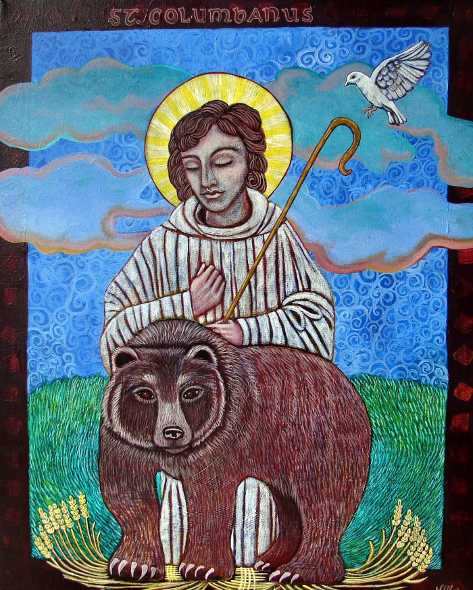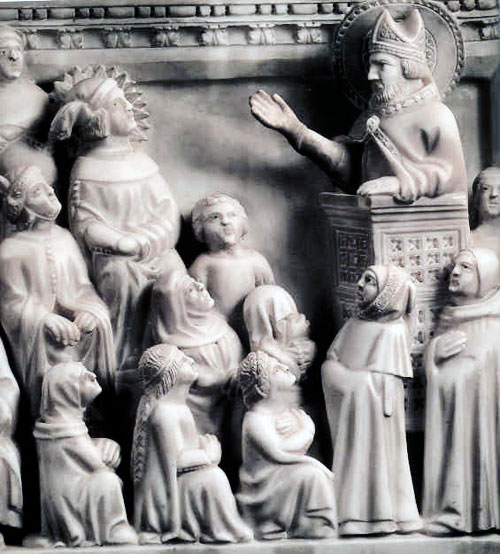I wrote this poem in honour of St. Columbanus. He was a seventh century Irish monk who was a disciple of St. Comgall of Bangor,and became one of the first and greatest Irish missionaries to the continent. He and those who followed him did much to reinvigorate Christianity among the violent and feuding Frankish monarchs, and to spread Christian learning again on the continent. Several of his powerful sermons and letters survive.

The Obedience of Birds
On the ruins of an old Roman road,
Columbanus pauses on his journey.
Beasts and Birds joyfully
dance around him,
like cats about the feet of their mistress.
Dreaming he sits on the trunk of a rotten oak,
the smell of the book in his lap
launches unexpected visions.
thoughts fly up through sheltering beams of fir,
travel far to windswept Bangor,
Ireland in the extreme ocean.
Youthful burning fire of obedience;
wherever salvation led him,
there he would go.
His reverend master,
severely gentle Comgall,
teaching adorned with eloquence,
enkindled that deep desire
to see strange lands.
The discipline of psalmody
trained Columbanus for future strife,
secured for him joyful virtues
from phalanxes of unseen enemies.
Joined by brothers,
companions half-mad with trust,
and eager for salvation,
the bond of peace,
a worthy solace,
companions thrust into the sea,
escorted by gulls through
the windy watery desert.
Aliens amongst the Franks,
those fierce and strange
long-haired children
who have learned
to play with knives.
Wandering through dark woods
with books of holy scripture
strapped to shoulders,
food furnished by bark and herbs,
unterrified and full of courage.
Mountains and forests have their charms:
better to suffer from wild beasts
than the madness of men who
lose their souls,
evildoers who bawl envious detractions.
fierce Brunhilda, her viper Theuderich,
venting their wrath like
dogs fighting over a bone.
Great flocks of birds of prey
came to love and fear him.
sharp-clawed bears
discerned his power,
ravens returned stolen goods.
A wondrous thing,
the broken are restored to
joyful hope.
Pilgrims are joined by men whose
sincerity cannot be doubted,
a net in the water,
filled now with so many fishes,
he could scarcely lift it.
A marvelous thing,
this obedience of birds.
An owl rustles in the tree,
cascading images of times and lives
release their grip.
All memories converge again
as eyes focus on the page, while
sunbeams point the way to prayer.








